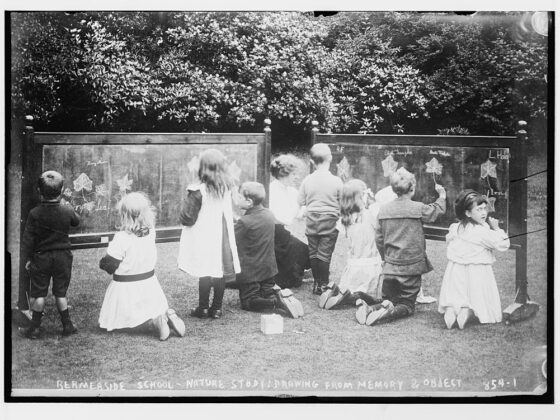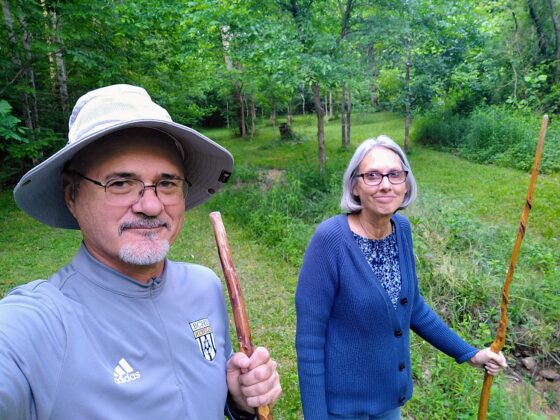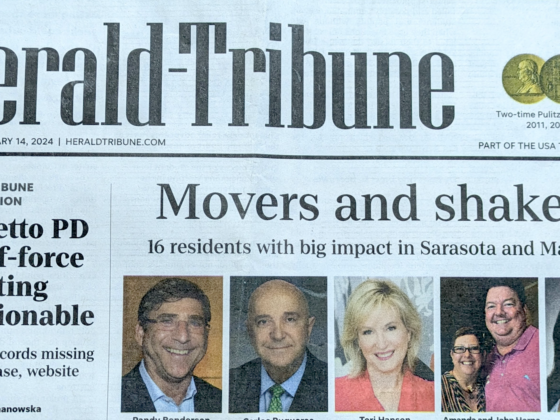So how did the “Our Towns” journey go from being a bestselling book to a critically acclaimed documentary? What’s it like when a wife-husband writing duo works with a wife-husband filmmaking duo? And what work does it take by the latter two to translate the writing of the former two?
Wearing my hat at Jefferson Educational Society, a community-based think tank headquartered in Erie, Pennsylvania, I got to pose those questions and more to that couple of couples – the writers Deborah Fallows and James Fallows and filmmakers Jeanne Jordan and Steven Ascher in the finale of the JES’s recent Global Summit XII slate of events. While the program aired live on Thursday, May 27, it’s now available to stream on-demand here.
Jeanne and Steve, the Academy Award nominated creative force behind the “Our Towns” HBO documentary, covered a lot of ground in a short amount of time – just as they did in the film, which I wrote about here – discussing how locations were selected, what the interview process looked like, and how they gained trust in communities in order to capture their story and then tell it on screen.
The Fallowses explained how their book, which I wrote about before here, came to be and described what it was like to have their story on screen – not just their “Our Towns” journey but a look at their life as a couple working together and being together.
In the JES presentation, we talk about community colleges and the function of tatamae and honne when it comes to engaging communities – both of which play key roles in the film – as well as other things, such as, whether, like how Steinbeck had in “Travels with Charley: In Search of America” named his truck (‘Rocinante’), had Deb and Jim named their plane?; what lies ahead for each couple; and a lot more.
Taking deep dives into subjects has been a hallmark of JES programming since its inception in 2008, creating a platform the exchange of ideas and information between presenters and the audience. So you’ll also hear me read some audience questions throughout.
Speaking of audience participation, Ascher, Jordan, and the Fallowses attended the program (and asked questions!) with prize-winning Washington Post Columnist David Ignatius just several nights before. Ignatius, who featured “Our Towns” in an April 2021 column for the Post, explored America’s greatest threats foreign policy challenges Monday, May 24. You can watch his session here.
Ever since 2009, the JES has hosted its annual Global Summit, a speaker series that began as a two-and-a-half-day venture featuring five events that drew a crowd of 500 people that’s grown to a three-week-long span drawing close to 7,000 attendees in 2019, with the mission of exploring the big ideas of the day through the nationally and internationally renowned thought-leaders on stage in Erie, Pennsylvania. But as has been the case with numerous organizations, the pandemic forced a pivot for the think tank. And that’s meant bringing programming to the people via the digital marketplace of ideas otherwise known as Zoom.
Including the recent spate of 14 programs in 18, the JES has hosted nearly 200 virtual programs since mid-March 2020, ranging widely in topic, from looks at local history to environmental policy to national politics to even an interview with the mayor of Bottrop, Germany, and more. In addition to its programming, the JES, under the leadership of its President Dr. Ferki Ferati, who’s the concluding story in the “Our Towns” chapter on Erie and featured in MenajErie Studio’s docu-series about Erie, Pennsylvania on the Our Towns Foundation website, publishes a hundred-plus publications annual, conducts a civic leadership academy, helps facilitate public policy work, and more – all of which it continued throughout the pandemic.
In the spotlight during the first week at May’s Global Summit were conversations on policy reform and racial equity and the Black Lives Matter movement thanks to Brookings policy experts Drs. Camille Busette and Rashawn Ray and Rev. Jeffrey Brown, the architect of the Boston miracle; a conversation with Ali Zaidi, the Deputy National Climate Advisor to the Biden Administration, on climate policy; signs of intelligent life beyond Earth with Harvard astronomer Dr. Avi Loeb; and a look at the Iron Lady on screen and the unifying power of cinema with director of the Margaret Thatcher Center for Freedom Dr. Nile Gardiner.
During the second and third weeks, which featured Global Summit Chairman (and familiar C-SPAN anchor) Steve Scully (who recently interviewed the Fallows on Washington Journal, which you can watch here) moderating the discussions, featured a look at three recent books – from Wall Street Journal Washington editor Gerald Seib’s “We Should Have Seen It Coming: From Reagan to Trump – A Front-Row Seat to a Political Revolution;” to the tale of two Nancys, first a look at Speaker Pelosi with USA Today Washington Bureau Chief Susan Page’s “Madam Speaker: Nancy Pelosi and the Lessons of Power” and then the former First Lady Reagan with Washington Post columnist Karen Tumulty’s “The Triumph of Nancy Reagan” – to two looks the impact with the Covid-19 pandemic and the pathes forward with Director of Infectious Disease at the University of Alabama Birmingham Dr. Michael Saag and CNN analyst and Washington Post contributor Dr. Leana Wen; and America’s 21 century diplomacy with Christopher Hill, former Assistant Secretary of State and former U.S. Ambassador.
In the fall, the think tank looks to resume its in-person Global Summit, featuring former President George W. Bush, historian Doris Kearns Goodwin, amongst others.



